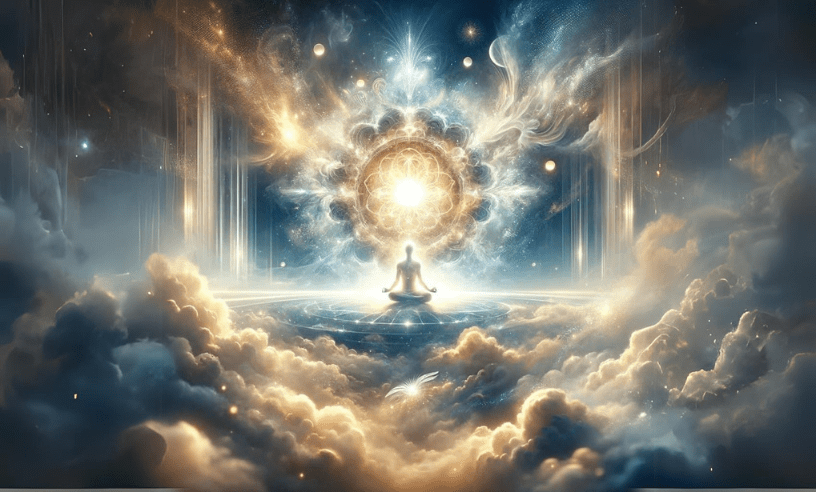
Across diverse religious traditions, from the mystical depths of Hinduism to the contemplative practices of Christianity, the concept of unity with the divine represents the pinnacle of spiritual aspiration.
The methods for achieving this union vary widely. In Christianity, this union is often described as a mystical experience of oneness with God by letting go of the ego to experience the divine ground of being. In Hinduism, the concept of moksha, liberation, represents the ultimate goal of breaking free from the cycle of rebirth and achieving union with Brahman, the ultimate reality. In Buddhism, the path to enlightenment involves transcending the illusion of selfhood to realize union with the ultimate reality, often referred to as “nirvana” or “emptiness.” The Islamic concept of Fanaa, annihilation of the self, describes the process of surrendering one’s will to Allah.There is also the concept of “tawhid” representing the oneness and unity of God (Allah). Judaism, while not emphasizing a complete merging with God, focuses on a deep and covenantal relationship. The concept of Devekut, cleaving to God, signifies a state of constant connection and devotion. In Sikhism, the goal of spiritual practice is to merge the individual consciousness with the universal consciousness, often symbolized by the metaphor of the drop merging into the ocean.
The concept of union with the divine is not meant to be a literal merging, but rather a profound transformation of consciousness. It is a state of deep connection, where one experiences a profound sense of peace, love, and unity with all beings. As Meister Eckhart so eloquently states, “The purpose of life is not to be in the right place, but to be in the right heart.” In this right heart, the experience of the divine becomes possible, no matter the path one walks.
Christianity
“That they may all be one; even as You, Father, are in Me and I in You, that they also may be in Us.”
– John 17:21
“When a person comes to the knowledge of God, the person ceases to be”
– The Meister Eckhart reader
Hinduism
“He who sees the Self in all beings and all beings in the Self, he does not become deluded”
– The Bhagavad Gita (Chapter 13, Verse 28)
“It is extremely difficult to obtain the vision you have had; even the gods long to see me in this aspect. Neither knowledge of the Vedas, nor austerity, nor charity, nor sacrifice can bring the vision you have seen. But through unfailing devotion, Arjuna, you can know me, see me, and attain union with me.”
— The Bhagavad Gita
Buddhism
“The mind is purified when it no longer thinks of the body as ‘I’ and the body is purified when it no longer thinks of the mind as ‘I.'”
– Dhammapada 7.1
Judaism
“And the LORD spoke to Moses face to face, as a man speaketh unto his friend”
– Exodus 33:11
Islam
“To [Allah] belongs the kingdom of the heavens and the earth. Then to Him you will all be returned.”
– Qur’an (39:44), Islamic scripture
Baha’i
“Unity is the expression of the loving power of God and reflects the reality of Divinity. It is resplendent on this Day through the bestowals of light upon humanity.”
– ‘Abdu’l-Bahá, Baha’i prophet
Taoism
“My limbs are without feeling and my mind is without light. I have ignored my body and cast aside my wisdom. Thus I am united with the Tao.”
– The Book of Chuang Tzu, Taoist text
Sikhism
“O Nanak, the Gurmukh is absorbed in the Naam, the Name of the Lord; he intuitively merges into the Lord.”
– Guru Granth Sahib, 1035
Modern Philosophy and Psychology
“The religious form of love, that which is called the love of God, springs from the need to overcome separateness and to achieve union.”
— Erich Fromm, social psychologist and philosopher


